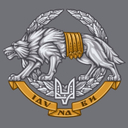Euromaidan Press
News and Opinion from Ukraine and Europe on Military and Political Developments.
The Case for Ukraine’s NATO Accession

At the signing ceremony of the North Atlantic Treaty on 4 April 1949, then-US President Harry Truman remarked that if this “simple document” had existed in 1914 and 1939, “it would have prevented the acts of aggression which led to two world wars.” The newly established alliance, he suggested, would ensure peace by deterring potential aggressors.
The success of this collective security strategy is reflected in the number of countries that have taken advantage of NATO’s open-door policy. Since 1949, the alliance has expanded from 12 to 32 members, with Finland and Sweden being the most recent additions. Now, member countries must commit to admitting Ukraine.
Bringing Ukraine into NATO is important for several reasons.
- For starters, any doubt about the alliance’s commitment to defend current or prospective members invites aggression. Russia is a case in point. The decision to shelve Ukraine and Georgia’s membership aspirations during the 2008 Bucharest summit led to Russia’s invasion of Georgia later that year. Similarly, turning a blind eye to Russia’s 2014 annexation of Crimea resulted in the full-scale invasion of Ukraine in 2022.
- Failing to defeat Russia in Ukraine would inevitably lead to more wars of aggression. But by admitting Ukraine, NATO could tip the balance decisively in its favor and dispel any doubt about the alliance’s future, ensuring a lasting peace.
- Moreover, appearing fearful of escalation or allowing its actions to be dictated by another power could push NATO into a death spiral. Giving in to threats would just lead to more threats and concessions. And if Ukraine falls, Estonia, Poland, Finland, or Taiwan will be next.
One of the basic tenets of NATO’s Cold War strategy was that force must be met with even greater force.
In 1946, the late American diplomat George Kennan summarized this strategic principle, explaining that while the Soviet Union was “impervious to the logic of reason,” it was “highly sensitive” to the “logic of force.” Whenever its aggression met strong resistance, it retreated.
Whenever the USSR’s aggression met strong resistance, it retreated.
The following decades vindicated Kennan. When Western powers showed they were determined to protect West Germany and South Korea during the Cold War, the Soviet Union backed down. Conversely, when the West hesitated, the Soviets attacked.
While US President Dwight Eisenhower’s invocation of the United Nations Charter failed to deter the USSR from invading Hungary in 1956, his successor, John F. Kennedy, spared West Berlin from meeting the same fate. Similarly, the West’s lackluster response to the Soviet-led invasion of Czechoslovakia in 1968 was followed by the Soviet invasion of Afghanistan in 1979.
By refusing to set a clear timetable for Ukrainian accession, NATO is capitulating to Russia’s demands, signaling to President Vladimir Putin that his dream of restoring the Russian empire is feasible and thus making World War III all but inevitable.
An Alliance deterred by Russia
Russia’s invasion of Ukraine exposed NATO’s vulnerabilities.
German Chancellor Olaf Scholz recently declared that Germany is willing to send 35,000 troops to defend “every square foot” of NATO territory. But that commitment, while significant, pales in significance when one considers that 500,000 Russian troops are currently fighting in Ukraine.
Moreover, the European defense industry has proven unable to supply Ukraine with sufficient weapons and equipment.

NATO Secretary General Jens Stoltenberg visits an exhibition displaying destroyed Russian military vehicles in central Kyiv. Credit: NATO/Flickr
Had Ukraine fallen in three days, as many “experts” predicted in early 2022, Russian forces would now be in Kazakhstan, Moldova, and possibly the Baltic states and Poland.
Given that Ukraine has the only European army that is both motivated and battle-hardened enough to resist Russia, admitting Ukraine would undoubtedly bolster NATO’s military capabilities.
While some might argue that such a move would force the Kremlin to respond, it is highly unlikely to use nuclear weapons. The USSR posed a much greater nuclear threat, yet the West did not surrender to Soviet blackmail. As German Chancellor Konrad Adenauer put it in 1961, while the nuclear threats “directed from time to time against one or other of the NATO partners” were dangerous, the “Soviet government must know that by any such blow, it would touch off a counter-blow by which it would be annihilated.”
The USSR posed a much greater nuclear threat, yet the West did not surrender to Soviet blackmail.
Was there truly zero probability of the USSR using nuclear weapons? Certainly not. But Western policymakers at the time understood that giving in to extortion would increase the likelihood of such an attack, not lessen it.
Lastly, the West must realize that Russia is already at war with NATO.
The Kremlin is financing terrorism, engaging in disinformation campaigns, fueling domestic conflicts, meddling in the elections of democratic countries, and reportedly planning a sabotage campaign across Europe.
Unfortunately, Western democracies have been too slow to accept reality. While political leaders debated whether NATO “provoked” Putin and whether they should allow Putin to “save face,” China and Russia have deepened their “no limits” military partnership and formed an “axis of upheaval” that is now threatening to undermine the US-led international order.
Why Ukraine’s battle is crucial for dismantling the global “axis of evil”
In 1988, then-US President Ronald Reagan explained that NATO is not about “today or tomorrow” but rather about “what Europe [will] look like in 15 years.” While we cannot predict the future, two things are clear.
If Ukraine falls, Europe could bleed for decades because Russia will not stop in Ukraine. Alternatively, with Ukraine as a member, the alliance could promote peace through deterrence, as it did during the Cold War.
The destinies of Ukraine, Europe, and NATO are inextricably linked. As French President Emmanuel Macron recently acknowledged, “Europe is mortal,” and its demise may already be in sight. The acute threat posed by Russia’s revanchist ambitions underscores the need for urgent action.
NATO members must use the July summit in Washington to invite Ukraine to join the alliance.
Yuriy Gorodnichenko

Yuriy Gorodnichenko is Professor of Economics at the University of California, Berkeley
Ilona Sologoub

Ilona Sologoub is Editor of VoxUkraine
Copyright: Project Syndicate. This article was published by Project Syndicate on 21 May 2024 and has been republished by Euromaidan Press with permission.
Related:
- Europe finds its courage to stand up to Russia
- 5 reasons why Russia’s war is to conquer Ukraine, not defend itself from NATO
- Ukraine joining NATO is a matter of when, not if, NATO chief says
- The new strategy NATO needs to avoid a protracted war in Ukraine
- An Alliance deterred by Russia
- Why Ukraine’s battle is crucial for dismantling the global “axis of evil”
You could close this page. Or you could join our community and help us produce more materials like this. We keep our reporting open and accessible to everyone because we believe in the power of free information. This is why our small, cost-effective team depends on the support of readers like you to bring deliver timely news, quality analysis, and on-the-ground reports about Russia's war against Ukraine and Ukraine's struggle to build a democratic society. A little bit goes a long way: for as little as the cost of one cup of coffee a month, you can help build bridges between Ukraine and the rest of the world, plus become a co-creator and vote for topics we should cover next. Become a patron or see other ways to support. Become a Patron!
Ukrainian military repels Russian attacks in Klishchiivka and holds ground in Pokrovsk.
In the past 24 hours, the Air Force and artillery of the Defense Forces have targeted 17 enemy personnel concentration areas, along with several key targets, including two command posts and two air defense systems.
Ukraine’s SSO special operations forces destroyed advanced Russian radar “Kasta-2E2” with drone (video).
Ukrainian Special Operations Forces successfully targeted the advanced Russian "Kasta-2E2" radar with a drone as part of ongoing operations against Russia's air defense assets.
Russia destroyed 9.2 GW power generation in Ukraine in three months, ambassador says
Russia has destroyed 9.2 GW of Ukraine's electricity generation capacity over the past three months through continuous missile attacks on energy infrastructure, EU Ambassador Katarina Mathernova reported.
Russian fund spends €100,000s on propaganda to affect legal cases in EU, leaked docs show.
Russia's Pravfond channels funds worldwide for legal aid and propaganda, influencing court cases and media, leaked docs show. It notably financed the defense of assassin Vadim Krassikov in Berlin and supports propaganda outlets like Euromore, Der ...
Czechia to pay one-time travel grant for Ukrainian refugees’ return home.
In a bid to facilitate repatriation of Ukrainians, the Czech Ministry of the Internal Affairs will reimburse travel costs to Ukraine for 400 of Ukrainians and provide medical transport for up to 30 individuals.
Why is this the world’s deadliest border? - Mapped Out.
The European Union is struggling to deal with migration—the consequences for migrants and refugees are dire. The bloc has agreed on tough restrictions and is making deals with autocrats to keep migrants out. Subscribe: For more news go to: Follow ...
A Michelin starred restaurant with a menu that takes you on a journey through the Middle East.
At Galit, James Beard Award-winning chef Zach Engel takes diners on a trip through the Middle East. The Chicago restaurant features modern cuisine and a unique wine list, and has garnered awards and praise since opening in 2019. CBS News 24/7 is t...
How architecture is changing to respond to dangers posed by hurricane season.
Atlantic hurricane season starts today. Experts predict a busy season, with NOAA's forecast anticipating 25 storms, with up to seven becoming major hurricanes. Here's how architecture is changing to respond to these dangers. "CBS Saturday Morning"...
This election season, follow the team that follows the facts.
Check facts, track election dates, explore interactive maps. Visit CNN.com/Election for your guide to the 2024 election cycle. #CNN
It's 'no secret' the State Dept. trends left, expert says
Heritage Foundation senior fellow Simon Hankinson highlights the State Department's 'obsession' with DEI policies and the impact on employment. #foxnews Subscribe to Fox News! Watch more Fox News Video: Watch Fox News Channel Live: FOX News Channe...
Trump case could go to the Supreme Court: Legal analyst.
Fox News legal analyst Gregg Jarrett joins ‘Fox & Friends Weekend’ to discuss the Trump sentencing set for July 11 and the legal backing that led to the guilty verdict in NY v. Trump. #foxnews Subscribe to Fox News! Watch more Fox News Video: Watc...

